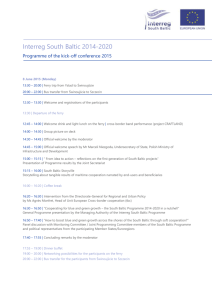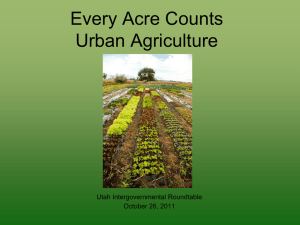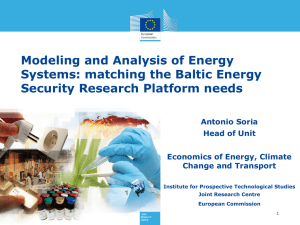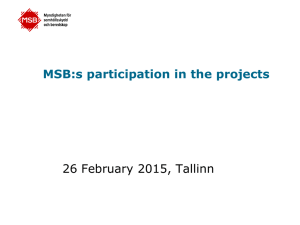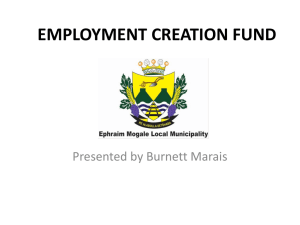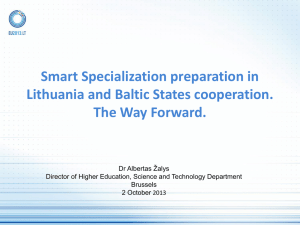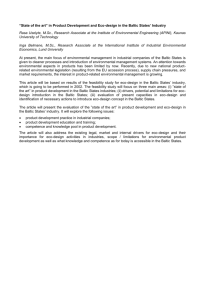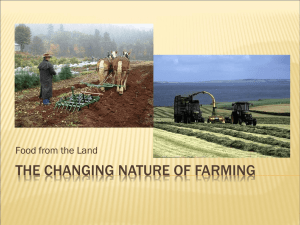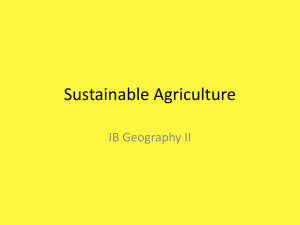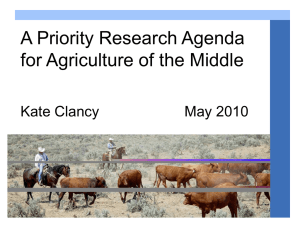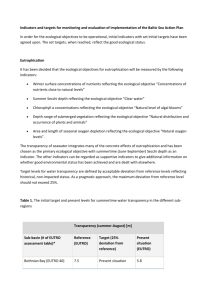- Coalition Clean Baltic
advertisement
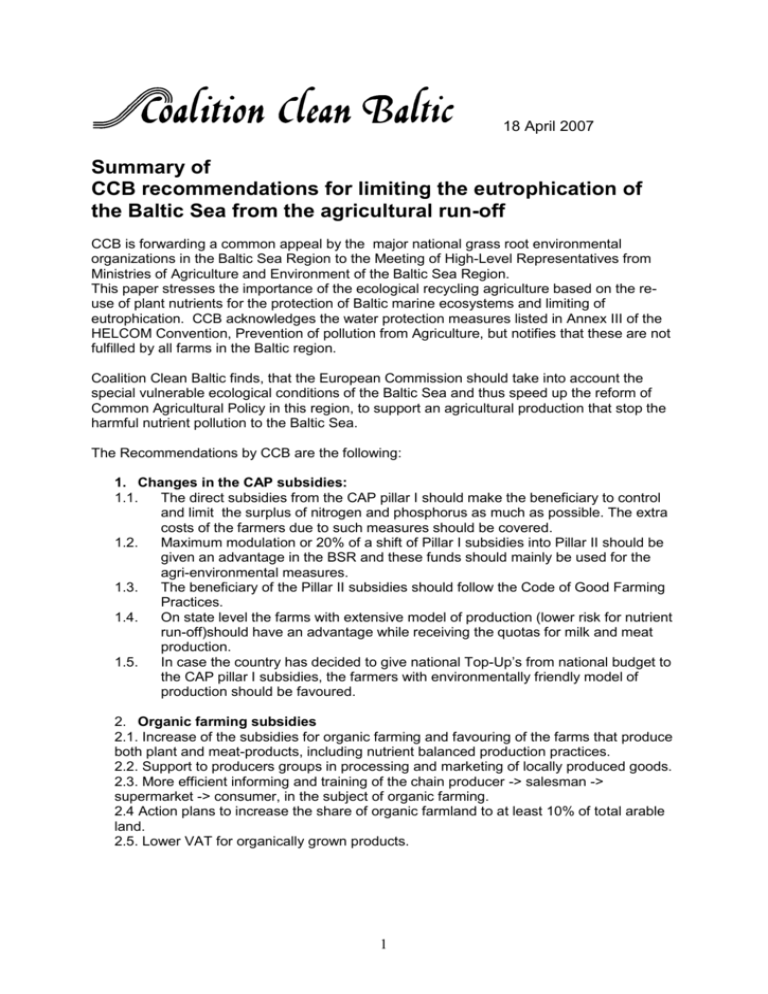
18 April 2007 Summary of CCB recommendations for limiting the eutrophication of the Baltic Sea from the agricultural run-off CCB is forwarding a common appeal by the major national grass root environmental organizations in the Baltic Sea Region to the Meeting of High-Level Representatives from Ministries of Agriculture and Environment of the Baltic Sea Region. This paper stresses the importance of the ecological recycling agriculture based on the reuse of plant nutrients for the protection of Baltic marine ecosystems and limiting of eutrophication. CCB acknowledges the water protection measures listed in Annex III of the HELCOM Convention, Prevention of pollution from Agriculture, but notifies that these are not fulfilled by all farms in the Baltic region. Coalition Clean Baltic finds, that the European Commission should take into account the special vulnerable ecological conditions of the Baltic Sea and thus speed up the reform of Common Agricultural Policy in this region, to support an agricultural production that stop the harmful nutrient pollution to the Baltic Sea. The Recommendations by CCB are the following: 1. Changes in the CAP subsidies: 1.1. The direct subsidies from the CAP pillar I should make the beneficiary to control and limit the surplus of nitrogen and phosphorus as much as possible. The extra costs of the farmers due to such measures should be covered. 1.2. Maximum modulation or 20% of a shift of Pillar I subsidies into Pillar II should be given an advantage in the BSR and these funds should mainly be used for the agri-environmental measures. 1.3. The beneficiary of the Pillar II subsidies should follow the Code of Good Farming Practices. 1.4. On state level the farms with extensive model of production (lower risk for nutrient run-off)should have an advantage while receiving the quotas for milk and meat production. 1.5. In case the country has decided to give national Top-Up’s from national budget to the CAP pillar I subsidies, the farmers with environmentally friendly model of production should be favoured. 2. Organic farming subsidies 2.1. Increase of the subsidies for organic farming and favouring of the farms that produce both plant and meat-products, including nutrient balanced production practices. 2.2. Support to producers groups in processing and marketing of locally produced goods. 2.3. More efficient informing and training of the chain producer -> salesman -> supermarket -> consumer, in the subject of organic farming. 2.4 Action plans to increase the share of organic farmland to at least 10% of total arable land. 2.5. Lower VAT for organically grown products. 1 3. Animal Farms – stronger environmental requirements when > 100 Animal Units 3.1. 3.2. 3.3. 3.4. 3.5. Stricter supervision over the activities of the farms with more than 300 AU and Treatment of the wastewater/manure from animal farms according to the same requirements/standards that are set for municipal wastewater. Farms with more than 100 AU (e g 700 pigs) should be called industrial farms and the environmental requirements for them should be the same as for industrial enterprises. The fertilization plans included in the IPPC licenses should foresee maximum utilization of manure as organic fertilizer. A statistical review about the closed IPPC farms due to failure of fulfilling the license condition and the summary effect of water protection as a result of successful fulfilling of these licenses. Industrial farms must not be constructed on NATURA 2000 sites and the farms that are already located there, should be closed down. 4. Fertilization taxes Introduction of taxes for using excess quantities of nitrogen and phosphorus fertilizer per hectare, tax on mineral fertilizers. In some countries taxes for using mineral fertilizers have been set. The income from such taxes should be used for agro-environmental measures. 5. The whole Baltic Sea basin should become a Nitrate Vulnerable Zone. The whole Baltic catchment to be appointed as a “Nitrate Vulnerable Zone”, to erduce the heavy eutrophication of the Baltic Sea. Strict enforcement of all EU Water protection directives, including Nitrate Directive and Water Framework Directive in the Baltic catchment. 6. Energy crops Water protection requirements should be the same for growing any kind of crops (independant of food, fodder or energy crop). A stong overfertilisation, often accompanying the energy crop production, should not be allowed. 7. Sustainable wastewater treatment, including nutrient recycling systems, in rural areas. The effluents from single family homes and small rural settlements are another major reason for the eutrophication for the Baltic Sea. Eco-toilet systems, with direct recycling of toilet nutrients to crop production, avoid creation of polluted wastewater. Future Vision Nutrient Balanced Recycling of all nutrients in agriculture production All farms and enterprises are independent from imported fertilizers and fodder, Application of CAP subsidies in Baltic catchment, that favour extensive production Tax system is favoring sustainable agriculture, Only low nutrient-leakage agriculture, e g extensive and organic farming, allowed in coastal zones/areas, EU has developed efficient strategies and action plans in soil protection, organic farming and protection of biological diversity. 2
